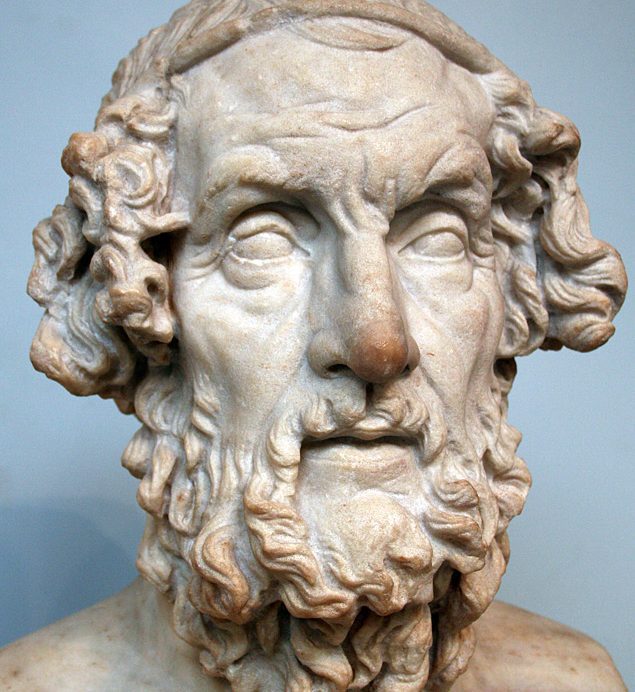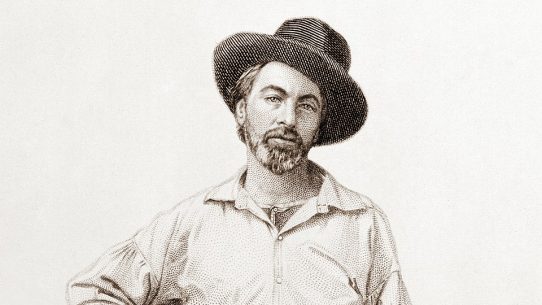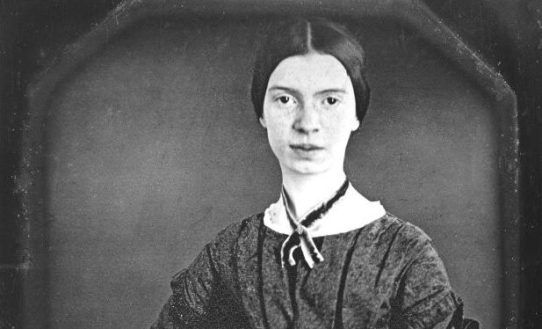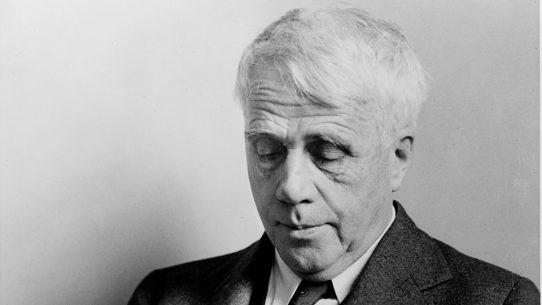Homer is the legendary ancient Greek poet traditionally credited with composing two of the greatest epic poems of antiquity: The Iliad and The Odyssey. These monumental works form the foundation of Western literature, shaping centuries of storytelling, art, and philosophy.
Though little is known about his life, Homer’s name has come to represent the collective genius of early Greek oral tradition — a voice that gave enduring form to the myths, values, and heroes of the ancient world.
Early Life and Education
The details of Homer’s life remain shrouded in mystery. Ancient sources disagree about his birthplace, naming cities such as Smyrna, Chios, and Ios as possible origins. He is believed to have lived around the 8th or 7th century BCE, though some traditions place him earlier. According to legend, Homer was blind — a symbolic detail that connects him to the figure of the inspired bard who “sees” truth through song.
There are no records of his education or family, but it is likely that Homer, or the poets working under his name, inherited the rich oral tradition of epic storytelling that had been passed down for generations. This tradition relied on memorization, formulaic expressions, and musical recitation to preserve heroic tales long before the advent of writing.
Literary Career and Major Works
Homer’s authorship of The Iliad and The Odyssey marks the dawn of Western literature. The Iliad recounts the final weeks of the Trojan War, focusing on the wrath of Achilles, while The Odyssey follows Odysseus’s perilous journey home after the fall of Troy. Together, these epics weave myth, history, and human drama into a unified poetic vision.
Written in dactylic hexameter, Homer’s verse is distinguished by its rhythmic power and vivid imagery. His poems celebrate heroism and honor while probing themes of mortality, fate, and the divine. They also reflect a deep understanding of human emotion — pride, grief, longing — that transcends time and culture.
Beyond the epics, other works such as the Homeric Hymns and the Batrachomyomachia (The Battle of Frogs and Mice) were once attributed to him, though modern scholars regard these as the work of later poets inspired by Homer’s style.
Style, Themes, and Influence
Homer’s poetry combines grandeur with psychological realism. His similes — often comparing human struggle to natural forces — lend his narratives both intimacy and universality. He depicts gods and mortals with equal complexity: divine beings intervene in human affairs, yet humanity’s courage and folly remain at the center of his vision.
Themes of honor (kleos), fate (moira), and hospitality (xenia) run throughout his work, reflecting the moral framework of ancient Greek culture. His portrayal of heroes like Achilles and Odysseus set the archetypes for courage, cunning, and tragic destiny that shaped classical and later literature.
Homer’s influence on Western thought is immeasurable. His epics inspired ancient Greek education, informed the tragedies of Aeschylus and Sophocles, and influenced philosophers such as Plato and Aristotle. Centuries later, his voice echoed in Virgil’s Aeneid, Milton’s Paradise Lost, and countless modern reinterpretations of myth and heroism.
Later Life and Legacy
Homer’s historical existence has long been debated — the so-called Homeric Question asks whether a single poet wrote both epics or whether they emerged from a collective oral tradition. Whatever the answer, the name Homer has become synonymous with the birth of epic poetry and the power of human storytelling.
The Iliad and Odyssey were first written down in the Archaic period of Greece, ensuring their survival through millennia. They were central to Greek education and culture, serving as both literary models and moral guides. Even today, translations and adaptations continue to find new audiences, reaffirming Homer’s role as the original architect of narrative art.
Notable Works
- The Iliad (c. 8th century BCE)
- The Odyssey (c. 8th century BCE)
- Homeric Hymns (attributed)
Related Poets
Hesiod, Virgil, Ovid, Dante Alighieri, John Milton



